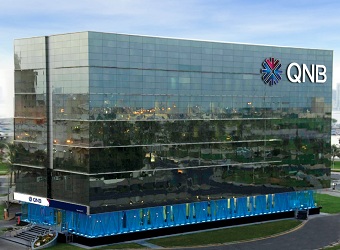Qatar National Bank (QNB), the largest lender in the Middle East and Africa by assets, is expecting loan growth of 12-14 percent this year, backed by government infrastructure spending, analysts said after a call with QNB’s finance chief.
The country’s banking sector has had to contend with fallout from a June decision by Saudi Arabia, the United Arab Emirates, Bahrain and Egypt to cut diplomatic and transport ties with Qatar, though the Qatari government has shown little sign of weakening its commitment to spending on infrastructure projects.
QNB expects net profit growth of 6-8 percent for 2017 and for 2018, analysts said after an investor relations conference call with QNB Chief Financial Officer Ramzi Mari.
A QNB spokesman declined to comment, saying the information discussed on the call was not for media circulation.
The bank last week reported a 5.6 percent rise in third-quarter net profit to 3.6 billion riyals ($960 million).
Qatari banks have relied on infrastructure lending in recent years, helped by projects in preparation for Qatar hosting soccer’s 2022 World Cup tournament.
QNB’s public sector lending has grown at around twice the pace of its private sector loan growth this year, the analyst sources said, citing Mari.
Though it achieved loan growth of 34 percent last year, that was helped by its 2.7 billion euro ($3.17 billion) takeover of Turkey’s Finansbank. Roughly a third of the 2016 growth was from international sources.
The previous year’s loan growth was 14.8 percent.
Qatar’s diplomatic row with its neighbours has cut off many of its banks’ funding sources in the Gulf and has led to an outflow of deposits from those four countries.
QNB still has 1.9 percent of total deposits from the Gulf countries that are at odds with Qatar and expects those funds to exit within the next six to nine months, the analyst sources said, citing Mari.
Source: Reuters
